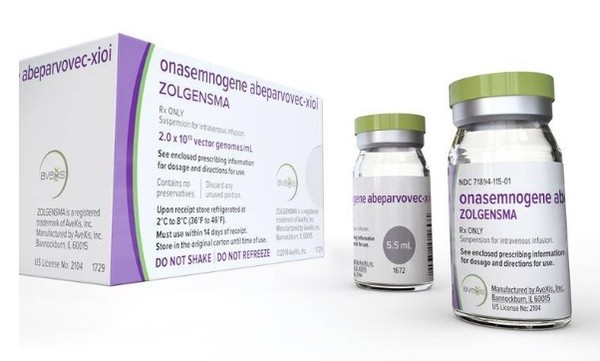“At this very moment, babies with spinal muscular atrophy (SMA) are being born who could lead a normal life with the use of Zolgensma somewhere in Korea. I can understand the regulator’s prudence before granting the nod for the first gene therapy, but the treatment has already won the license in advanced nations. I hope the regulator to remember that the longer approval takes, the more infants are missing the timely treatment.”
Moon Jong-min, chairman of the Korea Spinal Muscular Atrophy Patients Association, remarked, venting his emotions over the Ministry of Food and Drug Safety’s delay in approving Zolgensma (ingredient: onasemnogene abeparvovec), a treatment for SMA.

SMA is a serious rare disease that muscles gradually degenerate as motor nerves are damaged due to a gene defect in the survival motor neuron 1 (SMN1) gene. It is a leading genetic cause of infant mortality. Zolgensma is the first gene therapy recognized for its efficacy on SMA.
In Korea so far, the first authorized SMA treatment Spinraza (nusinersen) and recently released Evrysdi (risdiplam) have delayed the deterioration by regularly supplementing survival motor neuron 2 (SMN2), a gene that supports SMN1.
Zolgensma, the new drug, contains a copy of the SMN1 gene, enabling continuous production of proteins in patients themselves.
In late last year and early this year, Novartis and Roche reportedly submitted applications for approval for Zolgensma and Evrysdi, respectively, to the ministry. Following the news, SMA patients hoped that they could get two additional treatment options within the year.
However, the regulator granted the license only for Evrysdi last month. With less than a year left in 2020, patients are desperately waiting for approval for Zolgensma.
Ministry officials have been extra careful to give the green light to the first gene therapy for SMA. Recently, the regulator revised the detailed indication for the orphan drug.
In December 2018, when the ministry designated Zolgensma as an orphan drug, it classified it as a treatment for patients with type-1 SMA (infants aged six months or younger).
Later, the ministry virtually scrapped the age limit and allowed the orphan drug for those whose SMN1 gene is defective, and the number of copies of the SMN2 gene is three or fewer.
The patient group hailed the ministry’s decision, saying such drug classification was in line with the group’s desires.
“SMA patients are grouped in type-1 to type-3 SMA depending on their age at the diagnosis. But it is difficult to detect SMA early,” Moon said. “When parents sense that there is something wrong with their child, it is already late for diagnosis. Categorizing the disease merely by age and giving the treatment is unreasonable.”
To objectively evaluate SMA's seriousness, the regulator needs to classify patients depending on the number of copies of the SMN2 gene, he added.
Even if the latest classification is reflected on approval conditions, patients have limited access to treatment due to different reimbursement criteria, Moon noted. He called for the health authorities to allow all treatment options for patients eligible for approval conditions.
Families of patients who have received the insurance benefit of Spinraza hoped that other SMA patients could have the same treatment opportunity to use the therapy, Moon said.
As the patient group is well aware of the government’s rising cost for health insurance, the government could reevaluate and cancel the reimbursement for patients who do not respond to the treatment, he added.
The health authorities will need a separate tool to allow reimbursement for Zolgensma because the drug is injected only once, which makes it impossible to cancel the insurance benefit through reassessment, Moon noted.
“I heard that the earlier the patient gets Zolgensma, before the patient turns six months, the greater the possibility for the patient to live a normal life,” he said.
As Zolgensma is the first gene therapy for SMA with a hefty price tag, it is understandable that the government wants to prepare for the drug review and reimbursement fully, he went on to say.
However, the government should also keep in mind that babies with SMA are being born but are losing the treatment timing while the government was putting off the decision for the regulatory nod, he added.

